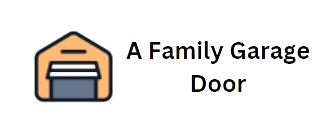Is your garage door sounding more like a creaky old ship than an entrance to your home? A noisy garage door can be annoying, and it’s not just the sound that’s bothersome. It could indicate underlying issues.
Fortunately, fixing this problem is often easier than you think. You can restore peace and quiet to your driveway with just a few simple steps. This blog will tell you all you need to know about how to fix a squeaky garage door.
How to Lubricate a Garage Door
A well-lubricated door operates smoothly, reducing wear and tear. This is why we’ll provide you with a detailed guide on how to do just that.
- Clean All Non-Moving Parts
Before applying any synthetic lubricant, clean all non-moving parts of your door. Dust and debris can accumulate over time, leading to unnecessary friction.
Wipe down the outer surfaces with a soft cloth or a brush. Pay special attention to hinges, garage door rollers, and tracks. Dirt buildup can cause even more noise. If you notice grime on the track itself, consider using mild soap mixed with water for a deeper clean. Just be careful not to damage any delicate components while scrubbing away.
After cleaning, make sure everything is dry before proceeding. Moisture can attract dust later and create new problems.
- Lubricate the Moving Parts
Once you’ve cleaned the non-moving parts, you can start with the lubrication. Grab a high-quality garage door lubricant or silicone spray. These products are designed to reduce friction and prevent rust.
Start with the metal rollers. Apply lubricant directly to each roller while it’s in motion, ensuring even coverage. This helps it glide smoothly along the tracks.
Next up are the hinges and garage door springs. A few drops of oil will do wonders for these components. After lubrication, they will move smoothly without any annoying sounds. Finally, don’t forget about the track itself! Wipe away any debris before applying a light coat of lubricant along its length. This ensures your door travels effortlessly up and down.
However, you should remember not to be too excessive. Too much lube can attract dirt over time, leading to more problems than solutions.
- Test the Door
After lubricating your door, it’s time to put it to the test. Open and close the door several times to see how it performs.
Listen carefully for any lingering squeaks or grinding sounds. A well-lubricated door should operate smoothly without noise. If you hear anything unusual, reassess your lubrication technique.
Additionally, check how easily the door moves along its tracks. It should glide rather than stick or hesitate during operation. If everything seems in order, take a moment to check the balance of the door as well. Disconnect it from the garage door opener by pulling the release handle, then manually lift it halfway up and let go. If it stays put, you’re on track.
How to Oil a Garage Door
Oiling your door will help with its functionality and maintenance. It helps minimize noise and ensures longevity.
Just like with garage door-specific lubricant, start by identifying the areas that need oiling, such as hinges, rollers, and tracks. These are common spots where friction can occur.
Use a high-quality silicone or lithium-based spray lubricant. Avoid grease as it tends to attract dirt over time. Apply the lubricant generously but avoid excess. You don’t want drips on your floor. Move the door up and down a few times to allow the oil to penetrate thoroughly.
Wipe away any leftover residue with a clean cloth to maintain cleanliness around your garage area. Once you’re done, it would be good to remember when you’ve oiled your door. This way, you can ensure that you do it frequently and avoid worse problems that can arise.
What if the Problem Persists?
If you’ve followed the steps to lubricate your door and it’s still squeaking, don’t panic. There are a few possibilities to consider.
First, check if there are any loose hinges or bolts and screws on the tracks. Sometimes, if you simply tighten these, it can resolve stubborn garage door noises. If that doesn’t help, inspect the rollers and track and look for signs of wear or damage. If you find anything, worn-out parts may need to be replaced. In this case, you may need a garage door technician to come and take a look.
Additionally, consider whether it might be time for a professional check. Garage door repair specialists can provide insights beyond basic maintenance that may save you from future headaches.
Take note of how frequently your garage door squeaks after lubrication. If it’s becoming a regular issue, it could indicate deeper mechanical problems that need attention. In such a case, contact a professional garage door service. Garage Door Repair Napa is at your service for any trouble with your garage door. Whether you need a repair or a replacement, don’t hesitate to get in touch.
